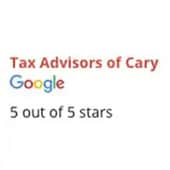With the increased popularity of lotteries and casinos, more unsuspecting winners are experiencing a lucky payday only to end up with a huge tax head-ache when filing their income taxes. Here is what you need to know:
Look for the warning signs
You are required to report as income any winnings you receive including, but not limited to:
| • slot machines | • bingo | • pull tabs | • horse/dog racing |
| • game shows | • raffles | • lottery | • gambling (e.g. cards, roulette) |
The winnings could be in cash, but also includes the fair market value of prizes such as a car, boat or vacation package. When you win the payer is required to give you a Form W-2G. Receipt of this form should be your clear signal that you have a taxable event.
How the tax math works
Unlike a business, gambling winnings are reported on one part of your tax return while any offsetting gambling losses are reported as a miscellaneous itemized deduction. In plain English, this means:
- Your income is increased by the amounts listed on W-2Gs and any other winnings you had during the year.
- If you do not itemize, you cannot deduct any gambling losses during the year.
- If you do itemize, you must be able to substantiate any gambling losses with an accurate diary, receipts, tickets, statements and other records.
- You may never deduct more in losses than winnings.
Some tips
- Merchandise. If you win a non-cash item, make sure you agree with the market value attributed to the item won. Often the item is overstated by the game organizer as a promotional technique. Ask to see a copy of the invoice that the organizer actually paid for the item. Consider printing out a dated copy of an advertisement of a similar item that is offered for less money.
- Losses. Losses do not need to match winnings for time and date. You may play bingo all year long at a locally hosted charitable bingo hall, but only win the big payout once during the year. You can offset all your losses against this one win, as long as you have accurate records.
- Casino assistance. When you win at a casino ask them for help. They often can help you understand and record your costs/losses. Consider joining the casino’s player’s club. With it they will send you a winning/loss statement at the end of each year.
- Tax withholdings. Consider withholding some of your winnings to pay for your federal and state tax obligation. This will help reduce the sting on tax day. Also consider submitting quarterly estimated tax payments.
- Professionals. If you consider yourself a professional gambler, business tax rules apply. But make sure this consideration is a defensible position in the eyes of the IRS. The IRS often challenges professional gamblers that attempt to take more in expense than they earn in winnings.
- Reselling merchandise. A special caution if you win an item and then resell it. Using a new car as an example, say you don’t need the car so you sell it for $25,000. You could find your W-2G has a market value of $30,000. In this case you would have $30,000 in taxable income, but only received $25,000. Your personal loss is not a tax deductible item.
Is there good news? Yes, gambling losses cannot be reduced at the federal level if you are subject to the Alternative Minimum Tax (AMT) or if you are subject to the reinstated itemized deduction phase-out.








